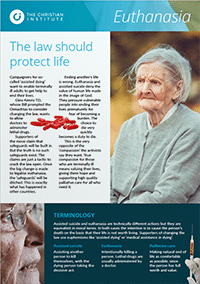A 13-year-old girl with a terminal heart condition will die at home after persuading her hospital to drop legal proceedings that could have forced her to have a heart transplant.
Although this has been dubbed a ‘right to die’ case, experts say it was really about whether the teenager’s decision to refuse treatment should have been accepted without question or not.
Hannah Jones was diagnosed with leukaemia at five years old, and the very strong drugs used to treat the cancer caused damage to her heart.
Having spent much of her life in and out of hospital, Hannah decided not to accept the offer of a risky heart transplant which she might not survive.
When the hospital was informed of her decision not to have a heart transplant, however, they began court proceedings to challenge that decision.
Medical law and ethics expert Dr Deborah Bowman explained that the law makes a distinction between a minor’s ability to consent to treatment and to refuse it.
Consent is usually accepted without question, but when a child says ‘no’ to treatment which appears to be in his or her best interests, the local healthcare trust is allowed to challenge that choice.
Rosemary Bennett of The Times defended the hospital’s actions, asking “who can blame a doctor for stopping to question why a 13-year-old child should want to stop fighting for life?”.
But Hannah was interviewed by a child protection officer, whom she managed to convince of her genuine desire not to go through yet more hospital treatment with such uncertain results.
The hospital consequently dropped the case when it was decided Hannah was old enough to make the decision for herself.
In a letter to the family, Chris Bull, head of Herefordshire Primary Care Trust said: “Hannah appears to understand the serious nature of her condition … Treatment options were discussed and Hannah was able to express her clear views that she did not wish to go back on a pump or to go into hospital for cardiac treatment.”
The Christian Institute’s Mike Judge said: “This young, brave girl has made a difficult decision not to proceed with a risky procedure. It is a situation which none of us would want to face, but by all accounts Miss Jones has handled it with great maturity.
“It would be wrong to characterise this as a ‘right to die’ case. This is not euthanasia, this is not assisted suicide. This is a decision not to risk a transplant which could – in Miss Jones’ case – do more harm than good. That is not the same thing as deliberately hastening a death.
“In any case like this involving a child, it is right and proper for the authorities to make sufficient enquiries to ensure that the child is making an informed choice. But in this particular instance, perhaps the authorities could have handled it better.”

